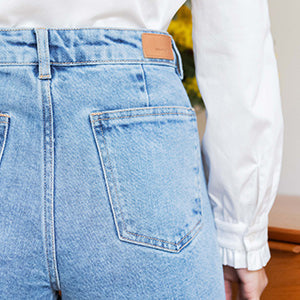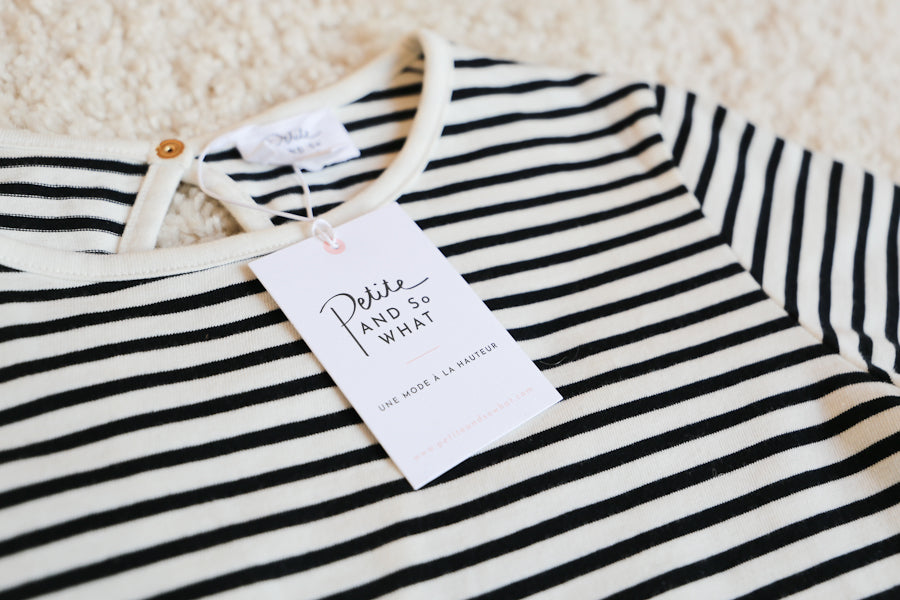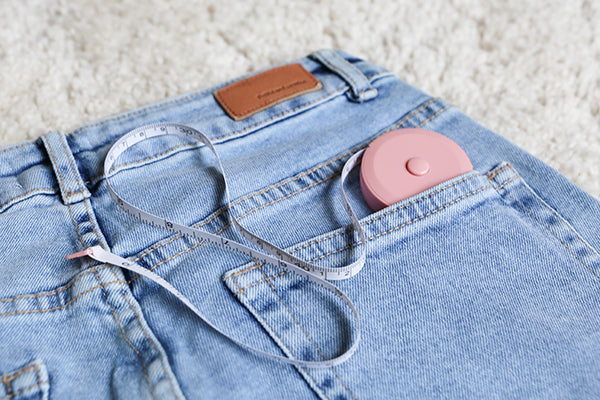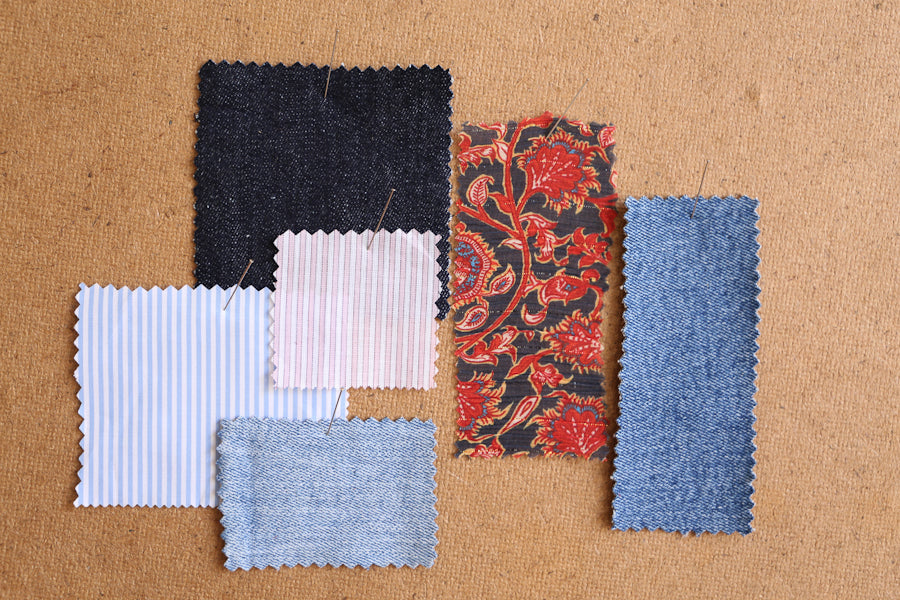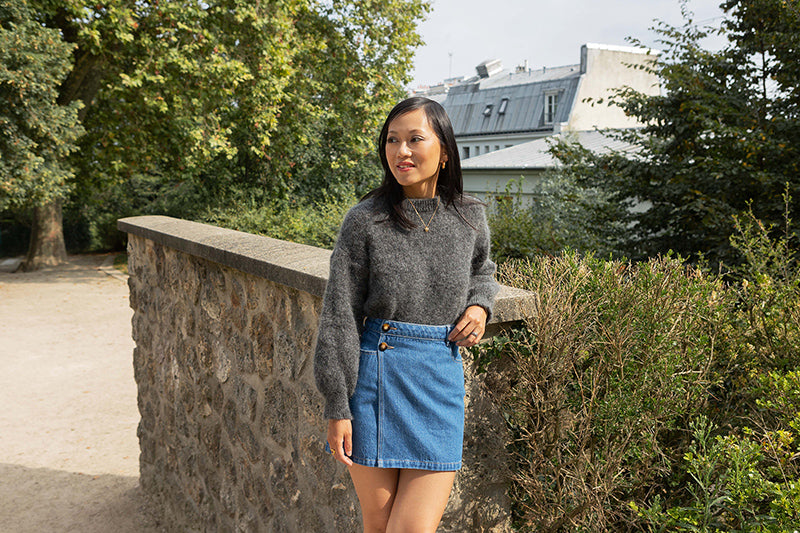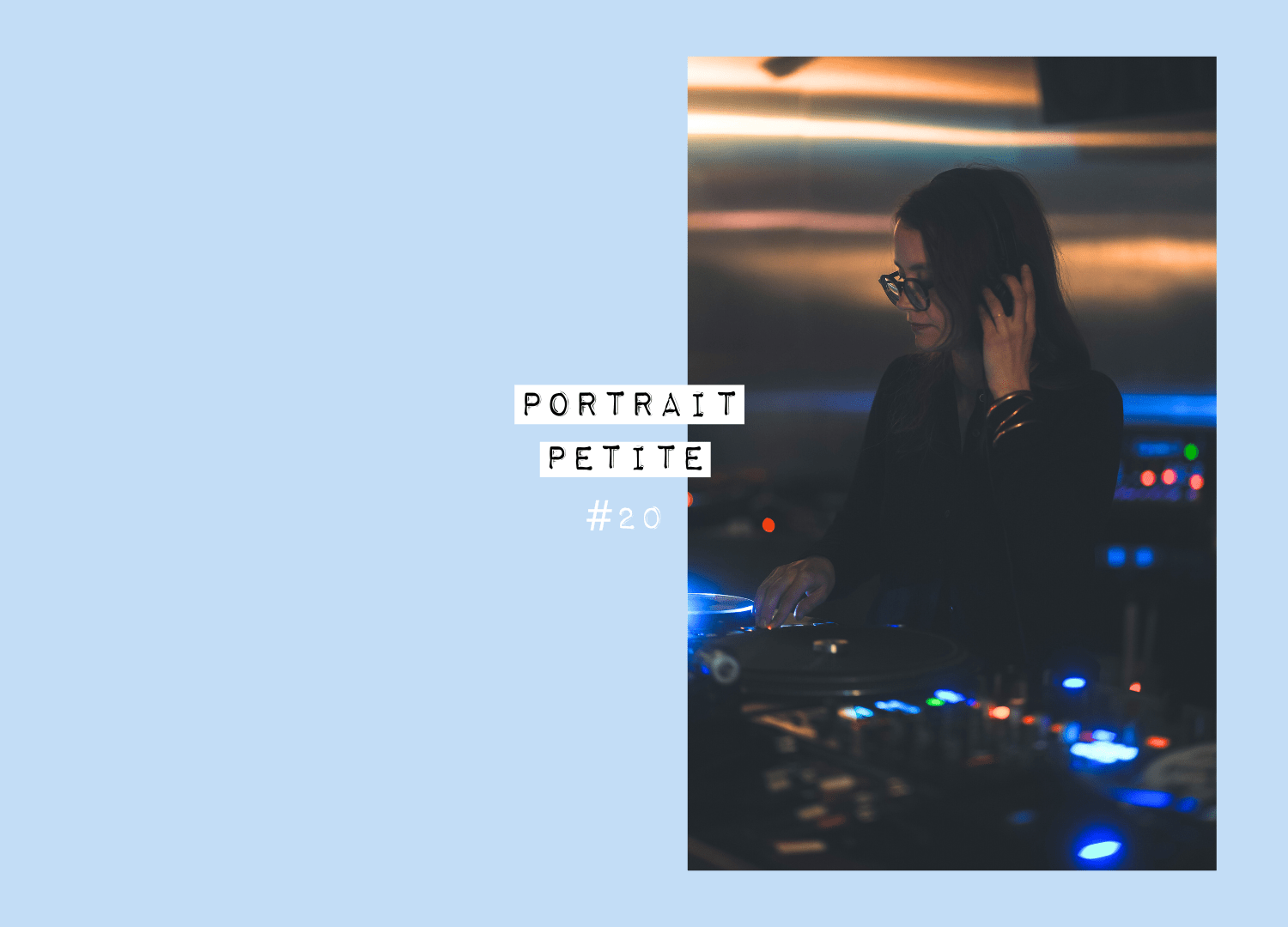Today, I'd like to introduce you to Hélène Queguiner, 38 years old and 1m54 petite , a DJ in Japan. Hélène is passionate about sharing her convictions and realizing her projects.
That's what can sometimes be complicated: finding the balance between your identity, what you want to share, your tastes and what the audience expects from your performance. You have to find the happy medium that makes an evening sublime, so to speak.
Can you start by introducing yourself?
Hi, I'm Hélène! I work for a cosmetics manufacturer in Tokyo by day and DJ by night. Shy by nature, I like to get out of my comfort zone and discover new things all the time.
Having always been passionate about Asia, I now live in Japan and find it hard to imagine myself anywhere else at the moment. A jack-of-all-trades, I always have lots of projects in mind and I try to give myself the means to carry them out. Even if sometimes things don't work out as I'd hoped, I'm proud to try!
Music is a new turn in my life that helps me like therapy. I try to bring comfort when I mix, and nothing gives me more pleasure than to be able to touch the audience with the music I've carefully chosen.
Can you tell us more about your background?
I started with a one-year preparatory class for the grandes écoles (MPSI), but I didn't like it. So I enrolled at INSA in Lyon, a post-baccalaureate engineering school with integrated preparatory classes. It was a lot more fun and I had a lot more fun!
After school, I moved to London. There, I worked for Procter & Gamble in the Luxury division. I was a packaging project manager in charge of coordinating our suppliers and marketing teams to meet their sometimes technically complex requirements.
Finally, after 8 years, I moved to Japan to realize my dream of living in Asia.
How did your passion for Asia come about?
I discovered my passion for Asia a little by chance, as I was lucky enough to be in a secondary school that offered Chinese as LV3 and I was able to discover this fascinating and mysterious language. What really appealed to me was Chinese literature, such as Chi Li's "Triste Vie" and Xinran's "Baguettes chinoises". These are stories of everyday life in China, which take a simple but true look at the harsh realities of life.
I also did a little introduction to Japanese in engineering school, but contrary to what you might think, even though I'm part of the 80s generation, I wasn't a fan of Japanese anime. I even hated Dragon Ball Z! I rediscovered manga and anime much later in high school, and this time I really enjoyed it. But it was always the traditional side of Japan that attracted me, with its kimonos, handicrafts and so on.
Why did you leave London?
I've really enjoyed living in London, I think the access to culture there is extraordinary. It may have changed since the Brexit, but there were great concerts for cheap, theaters were affordable and there were sometimes free exhibitions. I also liked the mentality at work, the managers were more into a coaching approach than giving orders and micro-managing. I found that it was a way of doing things that suited me very well, as I'm very autonomous.
Besides, I'd been thinking for a while that if I didn't move now, I'd never move. And even though I liked London, my idea for a long time had been to live in Asia. To be honest, the greying weather and the takeover of my company were the two big factors that pushed me to change my life.
Initially, I wanted to go to China, but the political context put the brakes on that desire. I chose Japan because I'd been there a few years before and liked the mysterious atmosphere. There was still so much to discover there!
How did you adapt to Japan?
It's quite complicated to find work in Japan from a distance, so I decided to study Japanese for a year and see if I'd like it.
I was lucky, I think, because I lived in a working-class neighborhood with a fairly elderly population. As I've always been very interested in the traditional sides of Japan, I was keen to take part in the "Matsuri" festival, which usually takes place in the summer. I came across a poster announcing the festivities and showed up with my mediocre Japanese to take part. At first, people looked at me strangely, but then I was quickly introduced to an old man who wanted to learn English and be in contact with foreigners, as he was volunteering for the Olympics.
Thanks to him and the kindness of the organizers, I was able to take part in this festival and discovered a very family-oriented event. We shared a common passion with this old man, photography, and I kept in touch with him after the festival. He sort of took me under his wing, and I think of him as my Japanese grandpa. Thanks to him and other people I've met over the years, I've found a community where I feel at home. I think my desire to discover and reach out to others has helped me a lot, and I've been lucky enough to meet the right people.
My personality is a bit more introverted, and sometimes in Europe I feel like I'm being crushed. It's easier for me to blossom and I don't mind other people's judgments.
Before you started DJing, what other projects did you have?
When I arrived and for a year, I took language classes in the mornings and afternoons, and in my spare time, I tried out different ideas. I had reached a period in my life when I began to question my consumption patterns: I was looking for a more responsible approach in my daily life.
I started out by launching a podcast on responsible travel called "Voyageurs de demain", but even though I was passionate about the subject,I realized that it was going to be difficult for me to make a living from this activity.
I followed this up with workshops to help foreigners settling in Japan move towards a more eco-responsible lifestyle, but Covid changed my plans. I took advantage of this break to create a community around the ecological transition through webinars and then co-founded Ekolokal with a Japanese friend.
Ekolocal's mission was to help Japanese people and foreigners living in Japan to identify more responsible retailers. We had an online eco-map and organized events around these themes. This adventure even led us to open our own third place (a vegan and communitycafé ). Unfortunately, it was difficult to survive financially and we had to close. I think we were a bit ahead of the game, as it's still a very niche subject in Japan.
I've learned a lot about myself through these different adventures, and I've evolved much more in 5 years in Japan than in 8 years in London.
So why music at all?
I did a retreat in Mexico and music was essential to the spiritual journey I undertook there. It helped me to free myself from certain things. When I came back from that trip, something clicked and I continued to use music on a daily basis to transform negative emotions and get through complicated periods.
How did you start mixing?
I started by myself, self-taught, tinkering on my computer with a small controller and following YouTube tutorials. A nice DJ also spent a couple of hours showing me the basics. On the technical side, I'm not very strong because I've never really taken lessons and I should probably think about it. I really started mixing at events we organized in our café.
In addition, I spotted a very nice community in Tokyo - Berlin Party - which organizes open DJ sessions every Thursday before the bands play, great for learning to mix in public and improving without pressure. Setting small goals like this pushed me to practice and improve. Tokyo's music community is very caring, I find, and by going to music events to discover and support other DJs, it's a great way to meet event organizers. organizers and mix in new venues.
So for the moment, mixer is more of a hobby?
Yes, I don't consider myself a professional yet, but an amateur. Because even if I get paid a little for some of my performances, for the moment it's more of a hobby than a profession. I don't know if I'll ever be able to make a living from it, especially if I have a family. That's why, at the moment, I'm making the most of it!
Recently, after my entrepreneurial adventuresI found a job with a Japanese company in the beauty industry in Japan, which gives me financial stability and allows me to explore different ideas and passions without stress. Fortunately, I found a good company and integrated quite easily, even if it's not always easy to make myself understood in Japanese.
How do you combine your work and your passion?
I'm not much of a party girl and I don't drink much. It's true that I'm not a cliché of the nightlife scene. I mix first and foremost to share the music, and most of the time, weekday parties don't finish very late. So I can easily get there after work and not be too sleep-deprived. At the moment, I do a lot of opening acts at weekends, but I'd really like to develop my network to mix at other venues and events. À Eventually, I may have to work more difficult hours to fit in with my lifestyle. If I really want to make a name for myself, I'll have no choice, but for the moment, I'm not there yet!
What does your stage name mean?
My stage name is Kotatsu. In Japanese, it's a heated coffee table. In winter, you add a blanket, and with the heater built in under the table, it's a warm and comforting place in the house. I chose this name because one of the first times I mixed, it was in front of my roommates on the kotatsu. We joked a lot about this set-up and that's how my DJ name "Kotatsu" came about. I decided to keep it because I also think it represents what I want to share when I mix. This idea of "warming hearts".
What do you like best about mixing?
What makes me happy is when the audience resonates with what I'm mixing. When people come up to me after my set to tell me they liked what I've played, or when I see them dancing. I tell myself that I've managed to touch them and convey the emotions I wanted to. That's what can sometimes be complicated: finding the balance between my identity, what I want to share, my tastes and what the audience expects from my performance. You have to find the happy medium that makes an evening sublime in a way. What I really love is unearthing rare gems and taking my audience with me on a musical journey.
Finally, a few questions to get to know you better:
Any music you'd recommend?
I recently discovered a fantastic Japanese artist. Her name is Juterus and she takes us on a journey with her bewitching voice over techno rhythms, which is really beautiful. I also really like Betoko and Yuksek. Finally, I love Polo & Pan.
What's your Sunday hobby?
For a few months now, I've been taking Taiko, the art of playing Japanese drums that you often see at festivals! I'm still into music...
Name 3 objects that accompany you on a daily basis?
My laptop, for sure! A book, even if I read less than I used to (my laptop's fault), I still have this reflex. More recently, a friend of mine gave me a balm that smells of spices and has relaxing effects, as a souvenir of her trip to Thailand. It's been with me ever since.
Any Tokyo spots to recommend to ourpetites tourists?
I love traditional neighborhoods and highly recommend Yanaka and Nezu. Just take the time to wander around and discover Tokyo's more traditional way of life. Nezu also boasts a beautiful shrine called Nezu-Jinja.
Your latest favorite?
I have two friends who make creations that I love.
One makes banana bags from upcycled Japanese kimonos, called
Mikan Bags. And my other girlfriend recently set up
Ichigo ichie, a brand where she makes bags from old Japanese kitchen aprons.
I also recommend my friend Stéphanie's podcast,
Zero to One , which talks about the first year after giving birth. I find it very reassuring and full of good advice if you're thinking of becoming a mom or have recently become one.
3 tips for petites who want to drop everything and change their lives?
- Something I haven't really done, but it's better to be financially prepared. It's best to have a plan for rebuilding your life over there and to think about your project before taking the plunge. The last thing you want to do is rely on someone else and keep your financial freedom.
- It's also very important to surround yourself with people; you have to go out and meet others, go to events and recreate your own village. If I hadn't made the effort to go out and take part in community gatherings, I'd never have felt so accepted in Japan.
- My last piece of advice is to go for it. Just go for it! Even if it doesn't work out in the end, too bad, at least you'll have tried and won't have any regrets. Even if you make mistakes, if you're not very well prepared, in the end it doesn't matter, if you're resourceful you'll always be able to get back on your feet. There's always a way out. So go for it!
Thank you very much Hélène!

